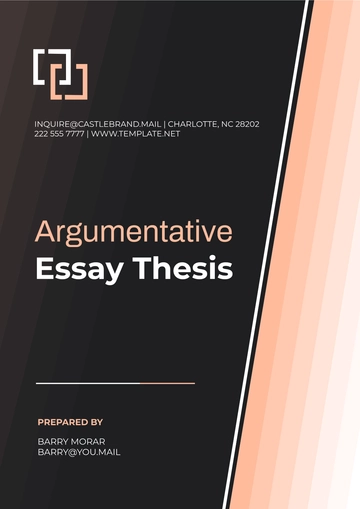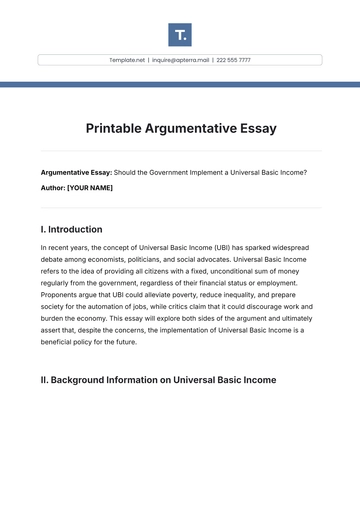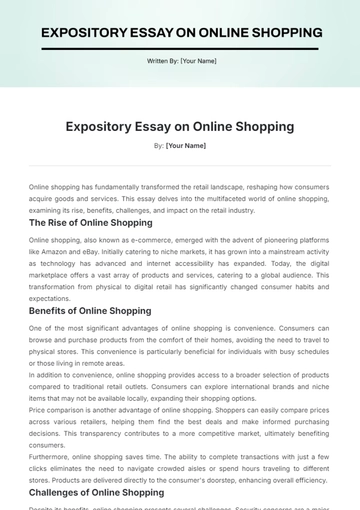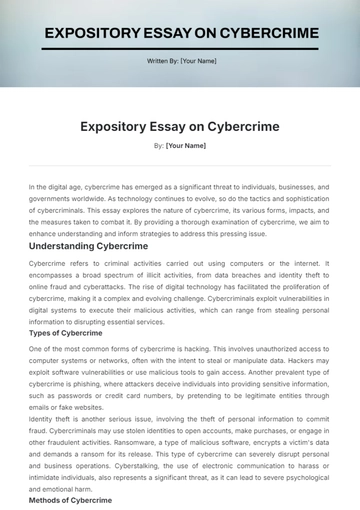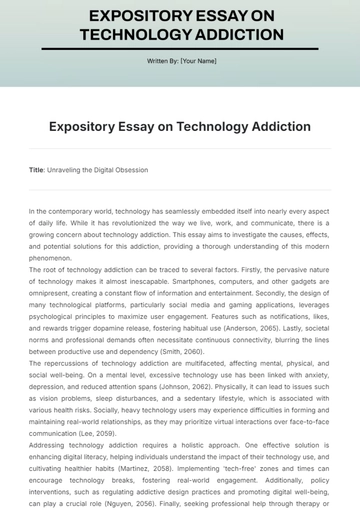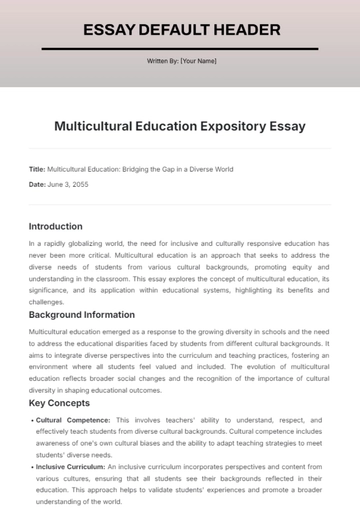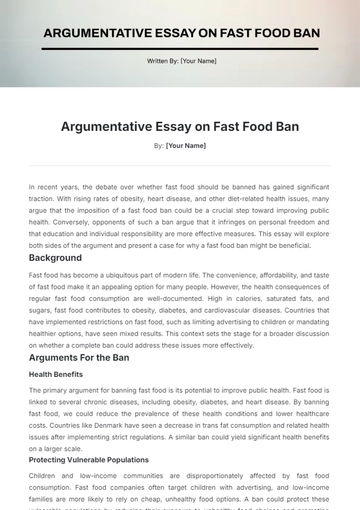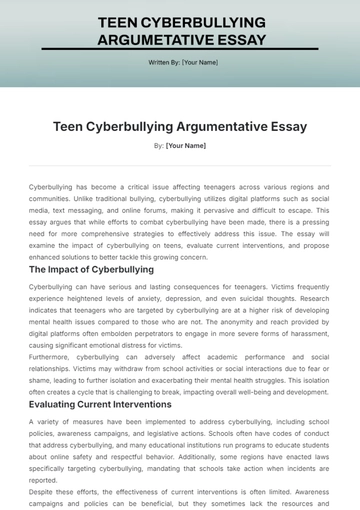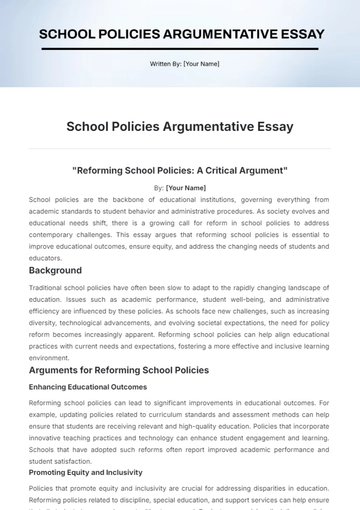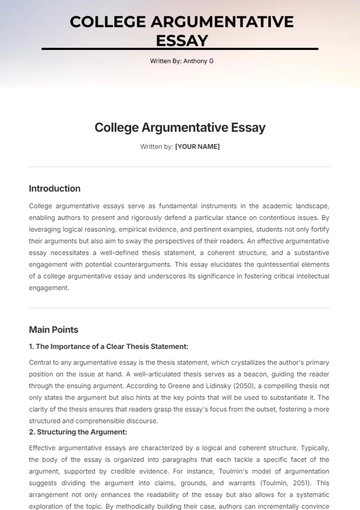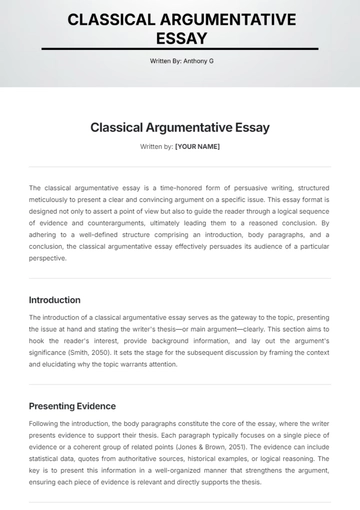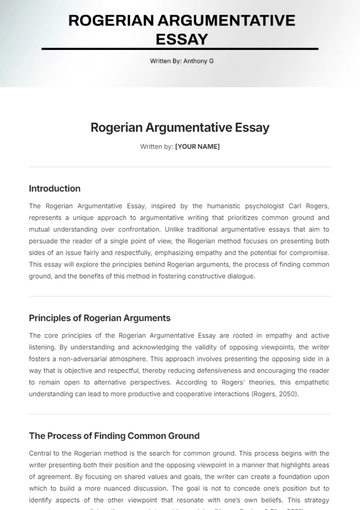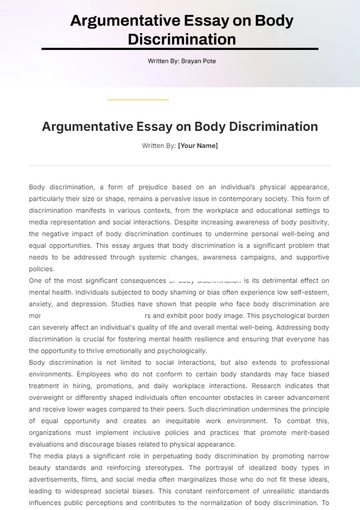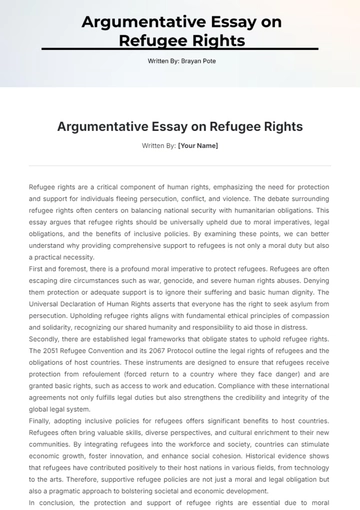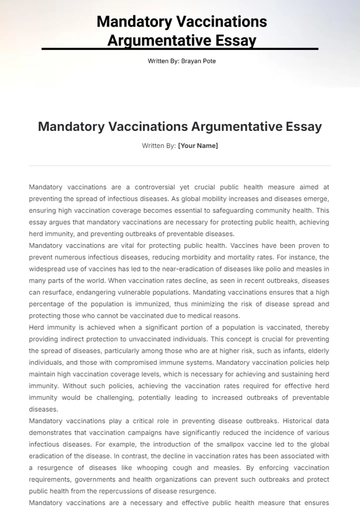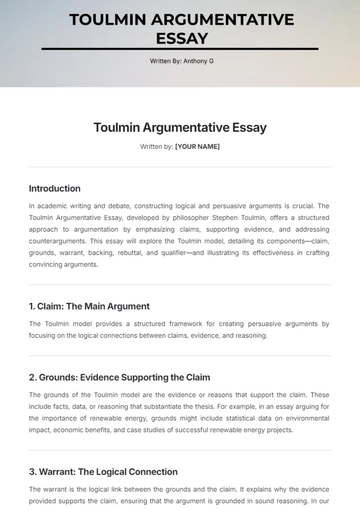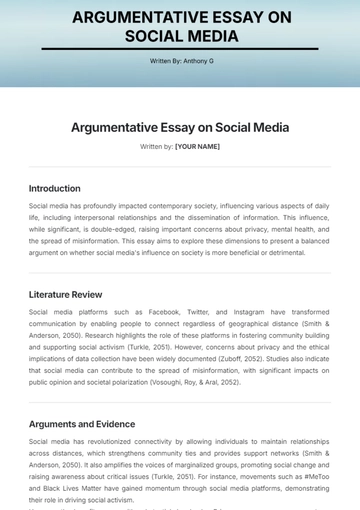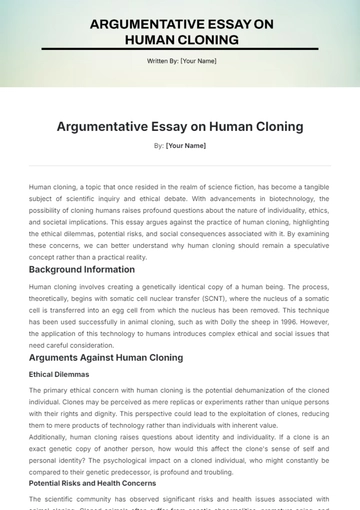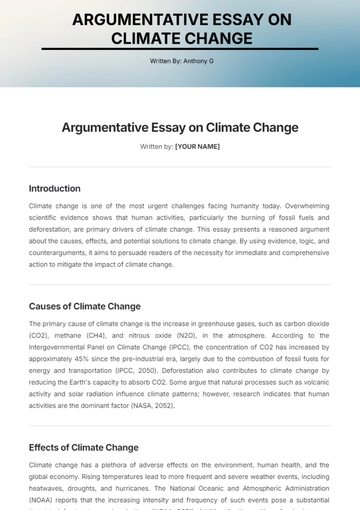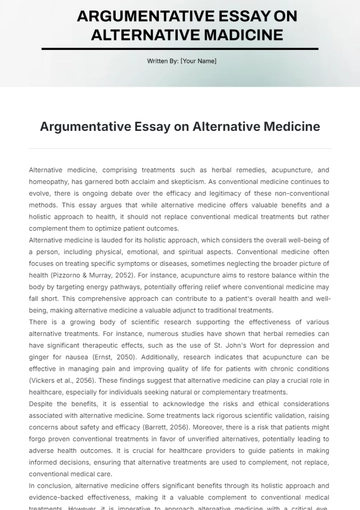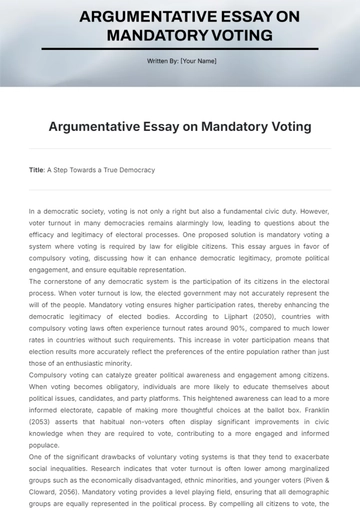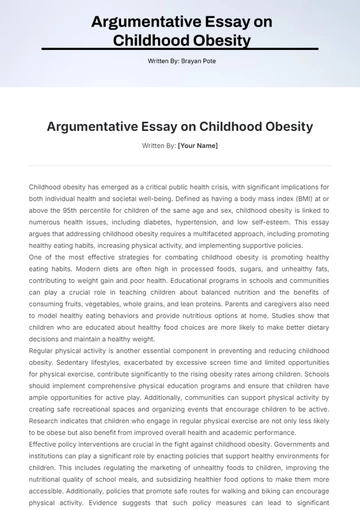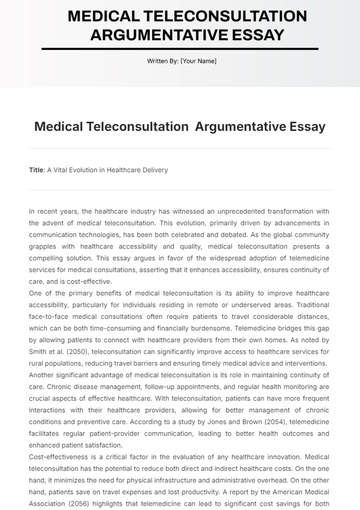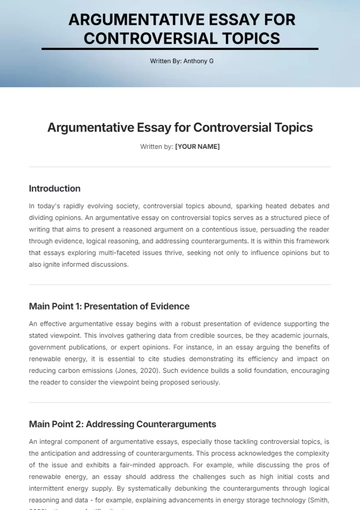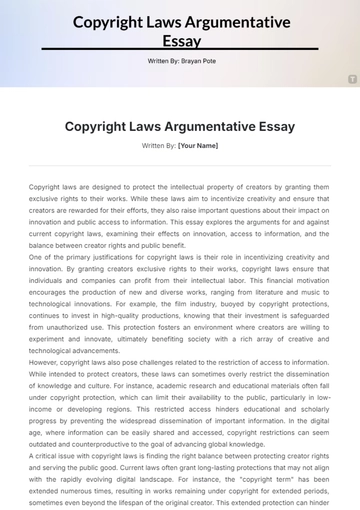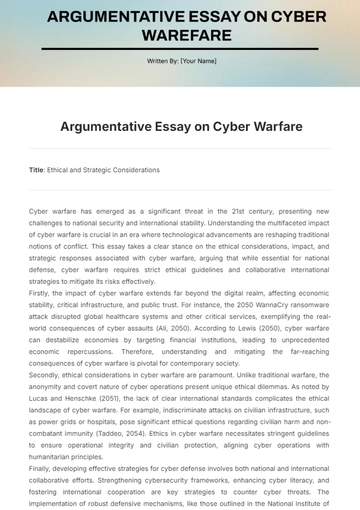Free School Choice Argumentative Essay
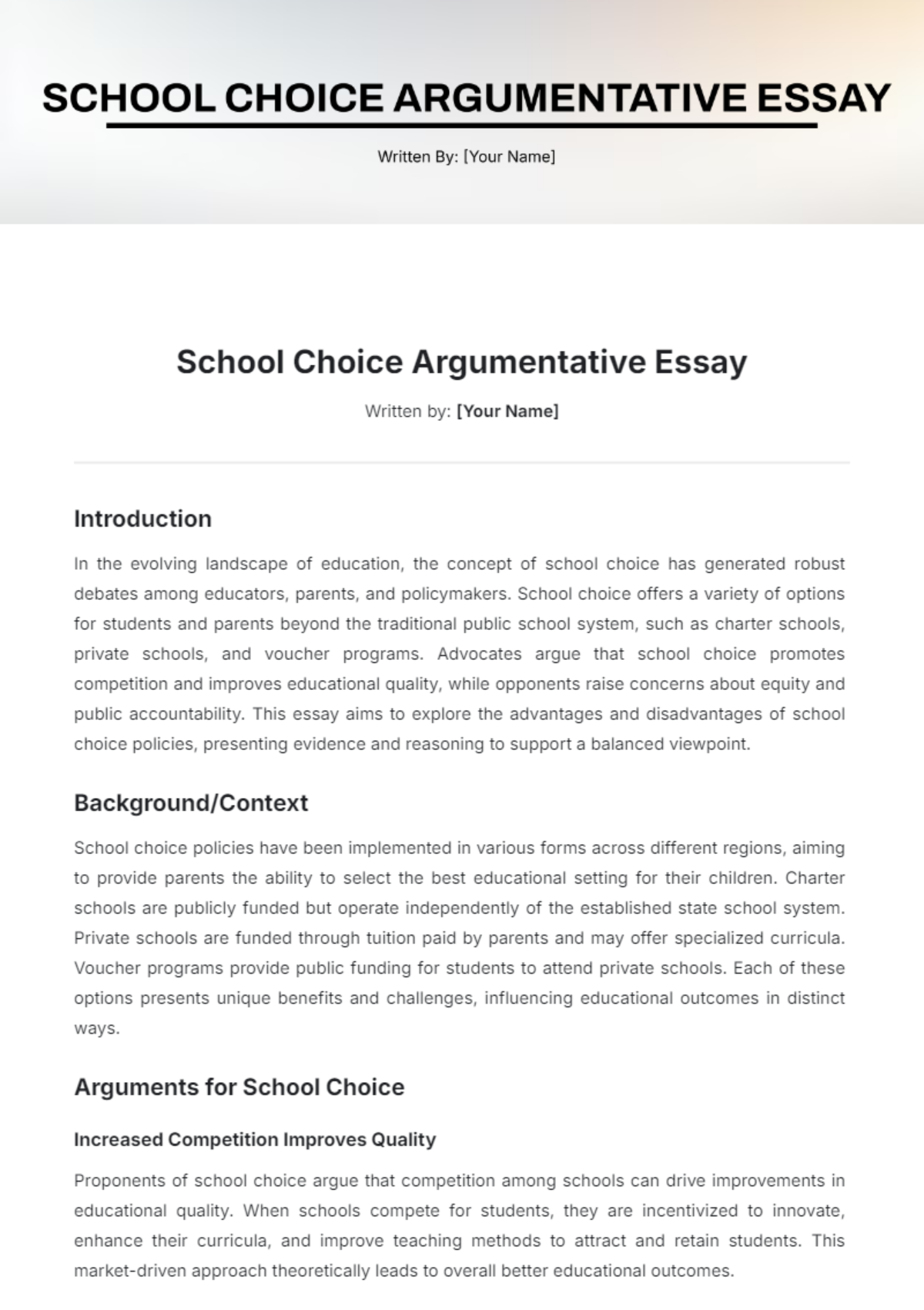
Written by: [Your Name]
Introduction
In the evolving landscape of education, the concept of school choice has generated robust debates among educators, parents, and policymakers. School choice offers a variety of options for students and parents beyond the traditional public school system, such as charter schools, private schools, and voucher programs. Advocates argue that school choice promotes competition and improves educational quality, while opponents raise concerns about equity and public accountability. This essay aims to explore the advantages and disadvantages of school choice policies, presenting evidence and reasoning to support a balanced viewpoint.
Background/Context
School choice policies have been implemented in various forms across different regions, aiming to provide parents the ability to select the best educational setting for their children. Charter schools are publicly funded but operate independently of the established state school system. Private schools are funded through tuition paid by parents and may offer specialized curricula. Voucher programs provide public funding for students to attend private schools. Each of these options presents unique benefits and challenges, influencing educational outcomes in distinct ways.
Arguments for School Choice
Increased Competition Improves Quality
Proponents of school choice argue that competition among schools can drive improvements in educational quality. When schools compete for students, they are incentivized to innovate, enhance their curricula, and improve teaching methods to attract and retain students. This market-driven approach theoretically leads to overall better educational outcomes.
Customized Education to Meet Diverse Needs
School choice allows parents to select schools that align with their children’s specific needs, learning styles, and interests. For example, charter schools often offer specialized programs in areas like STEM, arts, or vocational training, providing students with tailored educational experiences that might not be available in traditional public schools.
Empowerment of Parents and Students
School choice empowers parents and students by giving them control over their educational paths. This autonomy can lead to higher satisfaction and engagement, as families can choose environments where students are more likely to thrive academically and socially.
Arguments Against School Choice
Equity and Access Issues
Critics argue that school choice can exacerbate educational disparities. Families with greater resources and knowledge are often better positioned to take advantage of school choice options, leaving vulnerable populations—such as low-income families and students with disabilities—at a disadvantage in accessing high-quality education.
Depletion of Public School Resources
When public funds are diverted to charter schools, private schools, or through vouchers, traditional public schools may face financial strain. This reduction in funding can lead to cutbacks in essential services, larger class sizes, and decreased opportunities for students who remain in the public school system.
Lack of Accountability and Oversight
Opponents also raise concerns about the lack of accountability and oversight in some school choice institutions. Unlike traditional public schools, which are subject to strict state regulations and standards, charter schools and private schools might not always adhere to the same level of transparency, potentially compromising educational quality and student outcomes.
Rebuttals
Advocates of school choice counter the equity argument by emphasizing the establishment of scholarship funds and need-based vouchers that aim to improve access for low-income families. They also argue that public schools can become more efficient with properly managed funds and increased autonomy. Regarding accountability, proponents highlight that many charter and private schools are subject to rigorous accreditation processes and performance evaluations, ensuring they meet high educational standards.
Conclusion
The debate over school choice is multifaceted, encompassing a range of perspectives on educational quality, equity, and governance. Both proponents and opponents present valid points that merit careful consideration. Ultimately, the effectiveness of school choice policies will depend on their design and implementation, with a focus on balancing innovation and competition with fairness and accountability. Ongoing research and discourse are crucial to developing educational systems that serve the diverse needs of all students, ensuring equitable access to high-quality education for every child.
- 100% Customizable, free editor
- Access 1 Million+ Templates, photo’s & graphics
- Download or share as a template
- Click and replace photos, graphics, text, backgrounds
- Resize, crop, AI write & more
- Access advanced editor
Debate the pros and cons of school choice effectively with our School Choice Argumentative Essay Template from Template.net. This customizable and editable template helps you present balanced arguments on school choice policies. Editable in our AI Editor Tool, it's perfect for students and professionals exploring this important educational topic comprehensively.
